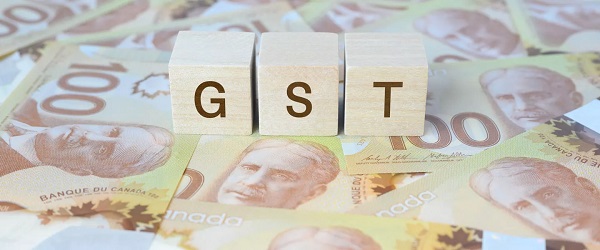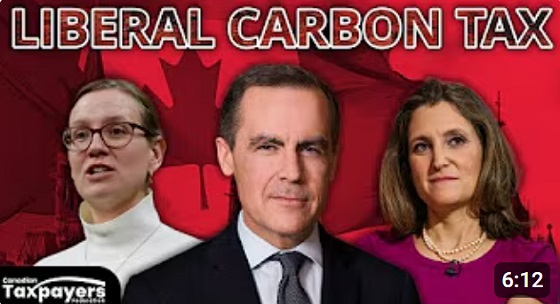Business
Ottawa’s GST break and rebate cheques amount to bad policy

From the Fraser Institute
By Jake Fuss and Grady Munro
On Thursday, the House of Commons passed legislation (tabled by the Trudeau government) that would temporarily suspend the federal Goods and Services Tax (GST) on select items from December 14 to February 15 at an estimated cost of $1.6 billion, as part of the government’s “more money in your pocket” plan. The legislation now goes to the Senate for approval.
The government has delayed a separate proposal—to give Canadians $250 rebate cheques—in light of NDP demands to expand eligibility to include seniors. The original proposal would have sent cheques to an estimated 18.7 million Canadians (who worked in 2023 and earned $150,000 or less) at a cost of $4.7 billion. While aimed at all Canadians, this proposal is eerily similar to the recent move by Ontario’s Ford government, which plans to send $200 cheques to Ontarians. And again, it’s just bad policy.
Why?
Consider this. During the recent discussion about increasing Old Age Security payments by 10 per cent for seniors aged 65 to 74, former Bank of Canada governor David Dodge said, “The last thing that we need to be spending money on at this point in time is boosting consumption for relatively well-off people.” This critique also applies to the Trudeau government’s $250 rebate cheques, which would go to many well-off Canadians. Indeed, based on the government’s original proposal, a couple earning a combined household income of up to $300,000 could receive these cheques.
Moreover, because onetime payouts and temporary tax breaks don’t incentivize people to work and invest, they don’t help raise living standards. But permanent tax cuts, such as reducing personal income tax rates or lowering capital gains taxes, would provide a stronger incentive for Canadians to work more and make investments because they get to keep more of the money they earn. That would help drive economic growth, create jobs and provide more economic opportunities for workers across the income spectrum.
In fact, the Trudeau government’s plan may actually hurt economic growth in the long run. The government is expected to run budget deficits for the foreseeable future, and will likely borrow the billions needed to pay for the GST break and $250 cheques. In other words, this “relief” package will likely increase the federal deficit in 2024 and potentially 2025. By borrowing more money, the government will increase the tax burden on future generations of Canadians who ultimately must pay off today’s debt. And just as lower taxes improve economic incentives, this higher future tax burden will worsen incentives and likely stifle economic growth and reduce living standards.
Don’t be deceived. While it’s nice to get a cheque in the mail and have a couple months free of the GST for some items, the Trudeau government’s “more money in your pocket” plan is bad policy.
2025 Federal Election
MEI-Ipsos poll: 56 per cent of Canadians support increasing access to non-governmental healthcare providers

-
Most believe private providers can deliver services faster than government-run hospitals
-
77 per cent of Canadians say their provincial healthcare system is too bureaucratic
Canadians are increasingly in favour of breaking the government monopoly over health care by opening the door to independent providers and cross-border treatments, an MEI-Ipsos poll has revealed.
“Canadians from coast to coast are signalling they want to see more involvement from independent health providers in our health system,” explains Emmanuelle B. Faubert, economist at the MEI. “They understand that universal access doesn’t mean government-run, and that consistent failures to deliver timely care in government hospitals are a feature of the current system.”
Support for independent health care is on the rise, with 56 per cent of respondents in favour of allowing patients to access services provided by independent health entrepreneurs. Only 25 per cent oppose this.
In Quebec, support is especially strong, with 68 per cent endorsing this change.
Favourable views of accessing care through a mixed system are widespread, with three quarters of respondents stating that private entrepreneurs can deliver healthcare services faster than hospitals managed by the government. This is up four percentage points from last year.
Countries like Sweden and France combine universal coverage with independent providers and deliver faster, more accessible care. When informed about how these health systems run, nearly two in three Canadians favour adopting such models.
The poll also finds that 73 per cent of Canadians support allowing patients to receive treatment abroad with provincial coverage, which could help reduce long wait times at home.
Common in the European Union, this “cross-border directive” enabled 450,000 patients to access elective surgeries in 2022, with costs reimbursed as if they had been treated in their home country.
There’s a growing consensus that provincial healthcare systems are overly bureaucratic, with the strongest agreement in Alberta, B.C., and Quebec. The proportion of Canadians holding this view has risen by 16 percentage points since 2020.
Nor do Canadians see more spending as being a solution: over half say the current pace of healthcare spending in their province is unsustainable.
“Governments shouldn’t keep doubling down on what isn’t working. Instead, they should look at what works abroad,” says Ms. Faubert. “Canadians have made it clear they want to shift gears; now it’s up to policymakers to show they’re listening.”
A sample of 1,164 Canadians aged 18 and older was polled between March 24th and March 28th, 2025. The margin of error is ±3.3 percentage points, 19 times out of 20.
The results of the MEI-Ipsos poll are available here.
* * *
The MEI is an independent public policy think tank with offices in Montreal, Ottawa, and Calgary. Through its publications, media appearances, and advisory services to policymakers, the MEI stimulates public policy debate and reforms based on sound economics and entrepreneurship.
2025 Federal Election
POLL: Canadians say industrial carbon tax makes life more expensive

The Canadian Taxpayers Federation released Leger polling showing 70 per cent of Canadians believe businesses pass on most or some of the cost of the industrial carbon tax to consumers. Meanwhile, just nine per cent believe businesses pay most of the cost.
“The poll shows Canadians understand that a carbon tax on business is a carbon tax on Canadians that makes life more expensive,” said Franco Terrazzano, CTF Federal Director. “Only nine per cent of Canadians believe Liberal Leader Mark Carney’s claim that businesses will pay most of the cost of his carbon tax.
“Canadians have a simple question for Carney: How much will your carbon tax cost?”
The federal government currently imposes an industrial carbon tax on oil and gas, steel and fertilizer businesses, among others.
Carney said he would “improve and tighten” the industrial carbon tax and extend the “framework to 2035.” Carney also said that by “changing the carbon tax … We are making the large companies pay for everybody.”
The Leger poll asked Canadians who they think ultimately pays the industrial carbon tax. Results of the poll show:
- 44 per cent say most of the cost is passed on to consumers
- 26 per cent say some of the cost is passed on to consumers
- 9 per cent say businesses pay most of the cost
- 21 per cent don’t know
Among those decided on the issue, 89 per cent of Canadians say businesses pass on most or some of the cost to consumers.
“Carbon taxes on refineries make gas more expensive, carbon taxes on utilities make home heating more expensive and carbon taxes on fertilizer plants increase costs for farmers and that makes groceries more expensive,” Terrazzano said. “A carbon tax on business will push our entrepreneurs to cut production in Canada and increase production south of the border and that means higher prices and fewer jobs for Canadians.”
-

 2025 Federal Election2 days ago
2025 Federal Election2 days agoNo Matter The Winner – My Canada Is Gone
-

 2025 Federal Election2 days ago
2025 Federal Election2 days agoASK YOURSELF! – Can Canada Endure, or Afford the Economic Stagnation of Carney’s Costly Climate Vision?
-

 Alberta2 days ago
Alberta2 days agoMade in Alberta! Province makes it easier to support local products with Buy Local program
-

 2025 Federal Election2 days ago
2025 Federal Election2 days agoCSIS Warned Beijing Would Brand Conservatives as Trumpian. Now Carney’s Campaign Is Doing It.
-

 Alberta2 days ago
Alberta2 days agoProvince to expand services provided by Alberta Sheriffs: New policing option for municipalities
-

 2025 Federal Election2 days ago
2025 Federal Election2 days agoInside Buttongate: How the Liberal Swamp Tried to Smear the Conservative Movement — and Got Exposed
-

 Bruce Dowbiggin1 day ago
Bruce Dowbiggin1 day agoIs HNIC Ready For The Winnipeg Jets To Be Canada’s Heroes?
-

 COVID-191 day ago
COVID-191 day agoCOVID virus, vaccines are driving explosion in cancer, billionaire scientist tells Tucker Carlson










